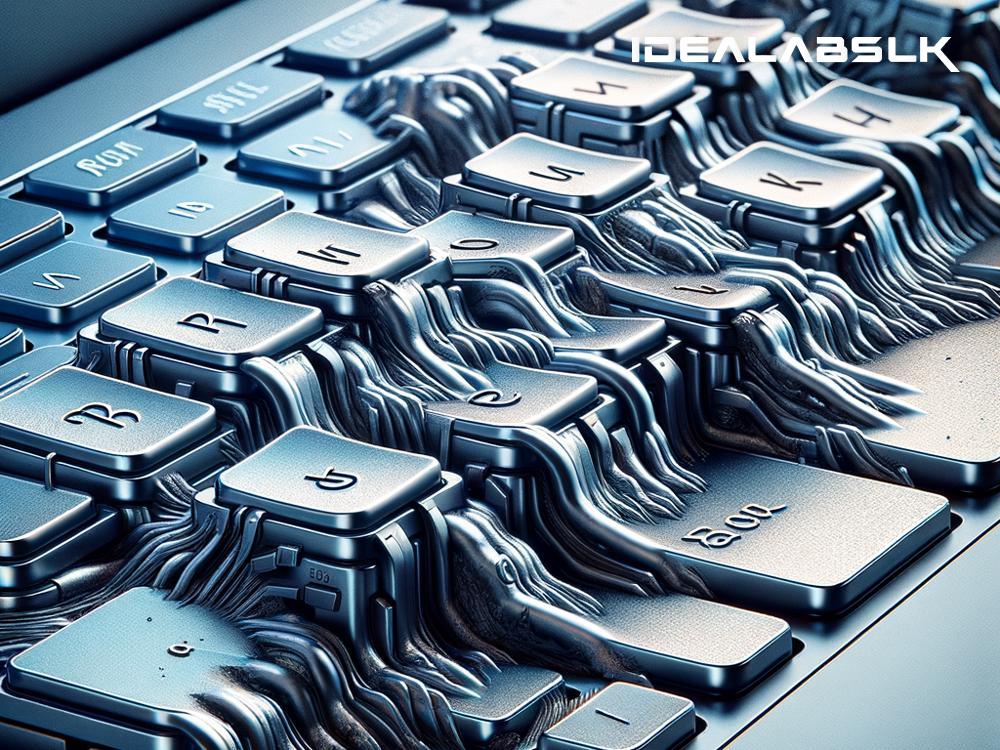Why Your Laptop Keyboard Keys Are Sticking
A laptop is a trusty sidekick for work, play, and everything in between. But what happens when it starts misbehaving, particularly when the keyboard keys begin sticking, making typing an exercise in frustration rather than productivity? Fear not, for we’re here to unravel this sticky situation and potentially save you a trip to the repair shop.
The Root of the Sticky Situation
Sticky keys can turn a seamless typing experience into a challenging chore. Several culprits could be behind this irksome issue, but here are the main ones:
1. Dirt and Debris:
The most common villain in the story of sticking keys is the accumulation of dirt, crumbs, and other tiny particles under the keys. Remember that time you munched on a snack while finishing up a project? Crumbs from that snack break could be the reason your keys are rebelling.
2. Spills:
Liquids and electronics are notorious foes. Spilling anything from water to soda can cause keys to stick, not to mention potentially harming the internal components of your laptop. Not only does the liquid make the keys sticky, but it can also leave behind a residue that hampers their function.
3. Wear and Tear:
Over time, just like any other part of a laptop, the keyboard can experience wear and tear. Regular use can lead to certain keys sticking or becoming unresponsive due to the degradation of materials or mechanical failures beneath the keys.
4. Manufacturing Defects or Design Flaws:
Occasionally, the issue may stem from a manufacturing defect or a design flaw in the keyboard itself, making the keys more prone to sticking or failure.
Unsticking the Situation
Let’s dive into some solutions to get those keys unstuck and your typing experience back to its former glory:
1. Cleaning:
Start with a good clean. Turn off your laptop and gently shake it to dislodge any loose crumbs. Then, use a can of compressed air to blow away debris from under the keys. A soft brush or a lint-free cloth can also be handy for removing dust and dirt.
2. Dislodging Spills:
If a spill is the cause, time is of the essence. Immediately turn off and unplug your laptop. Gently turn it upside down to prevent the liquid from seeping further into the device. Once it’s safe to do so, clean the affected area with a slightly damp (not wet) cloth with water or a mixture of water and isopropyl alcohol. Remember, the goal is to clean, not introduce more liquid.
3. Key Replacement or Repair:
In cases of severe wear or mechanical issues, you might need to replace the keys or even the entire keyboard. This could be a DIY project if you’re technically inclined (there are many online tutorials) or a task for a professional.
4. Prevention:
They say prevention is better than cure, and that certainly applies here. Try to avoid eating over your keyboard, and consider investing in a silicone keyboard cover to block out dust and potential spills.
When to Seek Professional Help
If you’ve tried the above solutions and your keys are still sticking, it might be time to consult a professional. Persistent issues could indicate a deeper problem, like damage to the keyboard’s underlying circuitry, which DIY efforts won’t resolve. A certified technician can diagnose and fix the issue, ensuring your laptop returns to its optimal state.
The Takeaway
Sticky keys can be a minor nuisance or a sign of a more significant problem. While cleanliness and careful usage can prevent many such issues, wear and tear or accidents can still occur. By understanding the common causes and solutions, you’ll be better prepared to deal with sticky keys and keep your typing experience smooth and efficient.
In the end, your laptop is an essential tool in your daily life. Treat it with a bit of care, and it will continue to serve you well, minus the sticky keys, of course.

